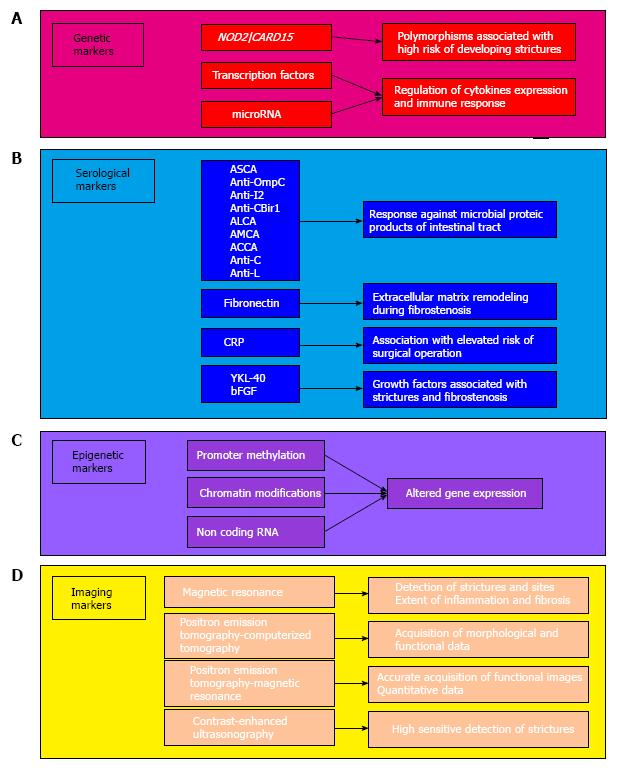Copyright
©The Author(s) 2016.
World J Gastrointest Pathophysiol. Aug 15, 2016; 7(3): 266-275
Published online Aug 15, 2016. doi: 10.4291/wjgp.v7.i3.266
Published online Aug 15, 2016. doi: 10.4291/wjgp.v7.i3.266
Figure 1 Biomarkers for assessment of fibrosis in Crohn’s disease.
The assessment of fibrosis currently relies on several biomarkers. Genetic markers (A) such as polymorphisms of the NOD2/CARD15 gene and transcription factors/microRNAs are currently associated with the presence of strictures and altered immune response. Serological markers (B) are evaluated to assess the presence of fibrosis in a minimally invasive fashion. Epigenetic markers (C) are useful to understand the mechanism underlying development of fibrosis. Markers evaluated through sophisticated imaging technologies (D) allow to acquire and elaborate precise course of the disease.
- Citation: Pellino G, Pallante P, Selvaggi F. Novel biomarkers of fibrosis in Crohn’s disease. World J Gastrointest Pathophysiol 2016; 7(3): 266-275
- URL: https://www.wjgnet.com/2150-5330/full/v7/i3/266.htm
- DOI: https://dx.doi.org/10.4291/wjgp.v7.i3.266









